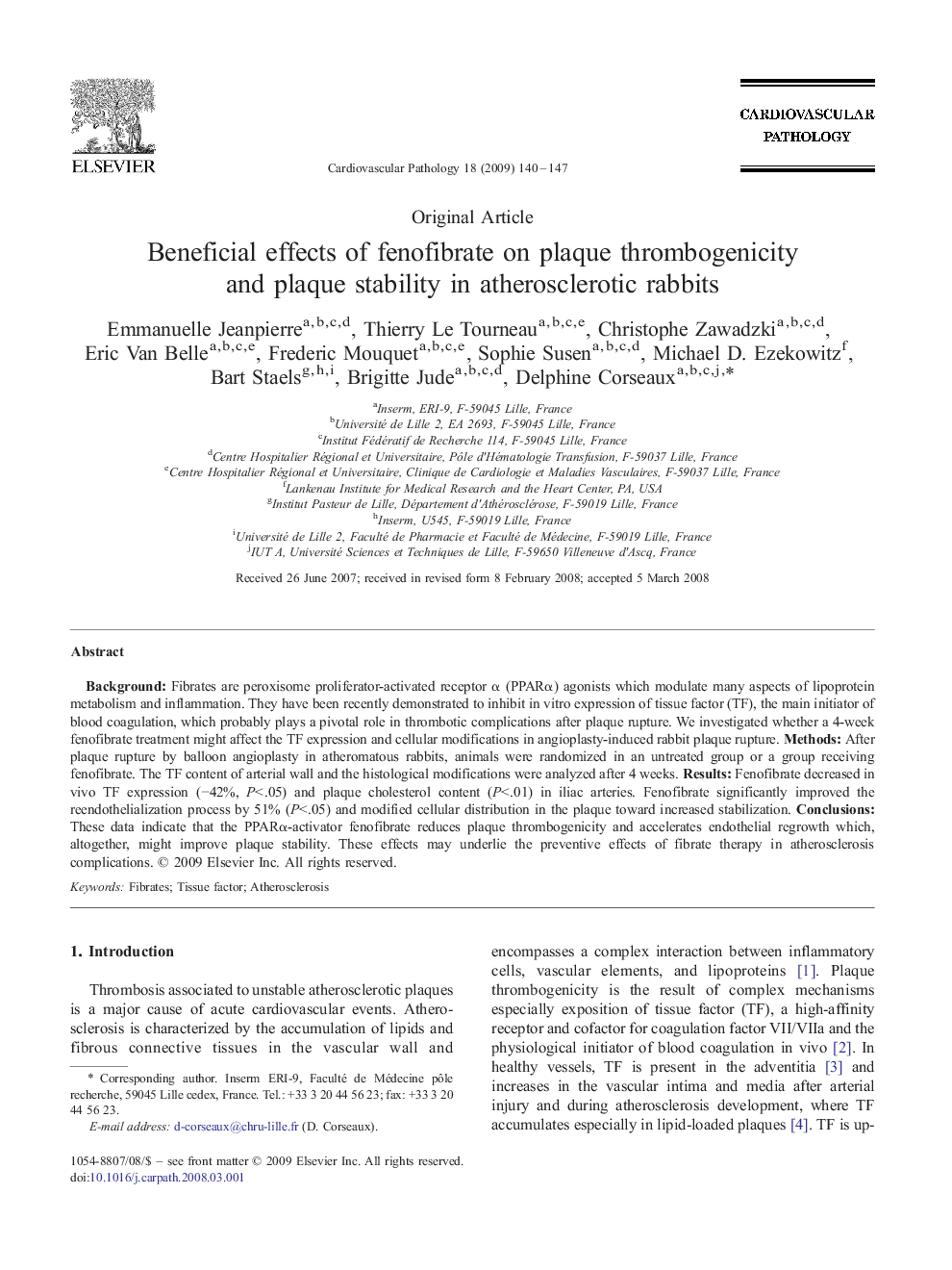| Article ID | Journal | Published Year | Pages | File Type |
|---|---|---|---|---|
| 2899140 | Cardiovascular Pathology | 2009 | 8 Pages |
BackgroundFibrates are peroxisome proliferator-activated receptor α (PPARα) agonists which modulate many aspects of lipoprotein metabolism and inflammation. They have been recently demonstrated to inhibit in vitro expression of tissue factor (TF), the main initiator of blood coagulation, which probably plays a pivotal role in thrombotic complications after plaque rupture. We investigated whether a 4-week fenofibrate treatment might affect the TF expression and cellular modifications in angioplasty-induced rabbit plaque rupture.MethodsAfter plaque rupture by balloon angioplasty in atheromatous rabbits, animals were randomized in an untreated group or a group receiving fenofibrate. The TF content of arterial wall and the histological modifications were analyzed after 4 weeks.ResultsFenofibrate decreased in vivo TF expression (−42%, P<.05) and plaque cholesterol content (P<.01) in iliac arteries. Fenofibrate significantly improved the reendothelialization process by 51% (P<.05) and modified cellular distribution in the plaque toward increased stabilization.ConclusionsThese data indicate that the PPARα-activator fenofibrate reduces plaque thrombogenicity and accelerates endothelial regrowth which, altogether, might improve plaque stability. These effects may underlie the preventive effects of fibrate therapy in atherosclerosis complications.
